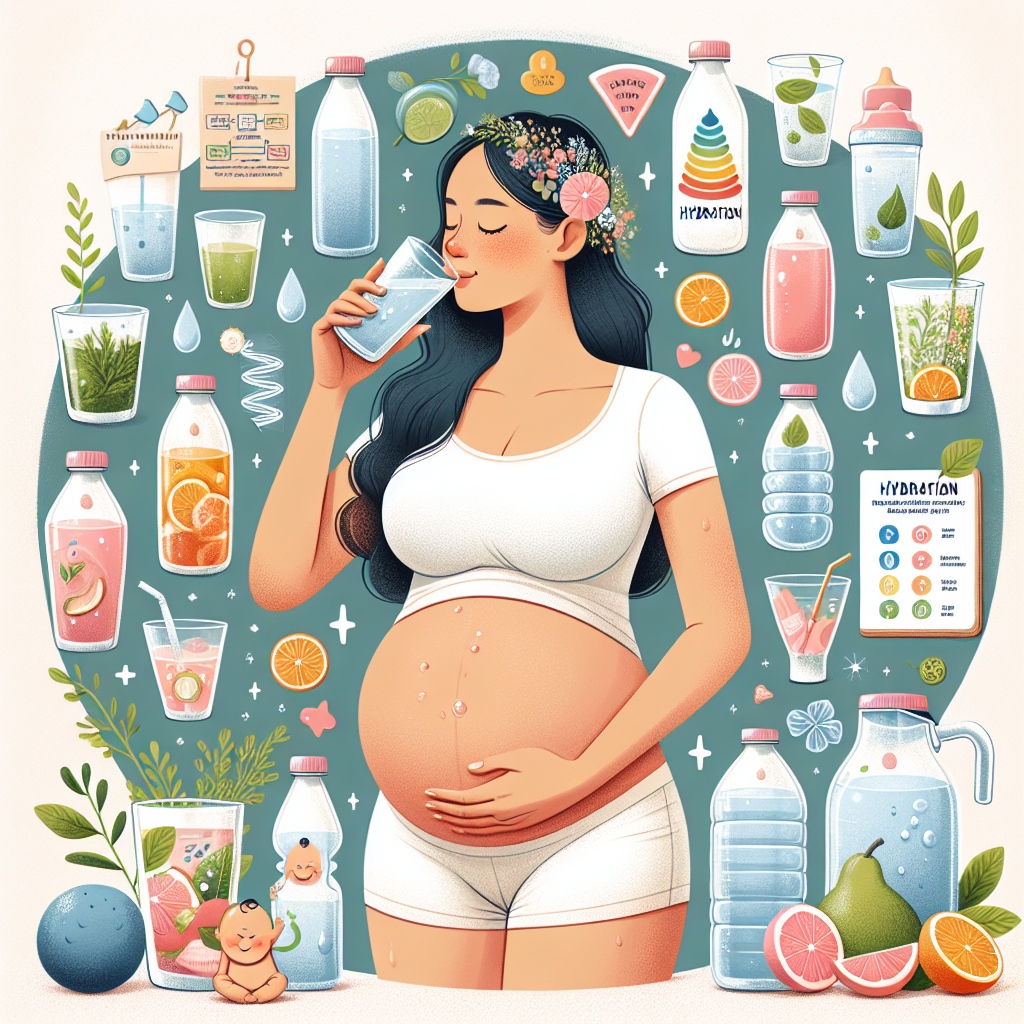Hydration During Pregnancy and Breastfeeding: Essential Tips
Introduction
Adequate hydration is essential for everyone, but it becomes even more important when talking about the health of mothers and children. For a pregnant or nursing mother, proper fluid intake is vital for both her and her little one's optimal development. Therefore, this article will explore the importance of hydration during pregnancy and breastfeeding and provide concrete advice to ensure adequate fluid intake.
The Importance of Hydration During Pregnancy
Pregnancy is a time when a woman's body goes through many physical and hormonal changes, and hydration plays a crucial role in supporting these transformations. We will explore how hydration affects different aspects of pregnancy and why it is essential to maintain adequate fluid levels.
Development of the Fetus
Insufficient hydration can affect fetal development in various ways. Low fluid levels in the mother's body can reduce the amount of amniotic fluid, which is essential for the protection and proper development of the baby. In addition, adequate hydration supports healthy blood circulation, essential for transporting nutrients to the fetus.
Kidney Function and Reduced Risk of Infections
The mother's kidneys work extra hard during pregnancy, removing waste from both hers and the fetus. Therefore, drinking enough water is crucial to prevent kidney problems, such as urinary tract infections, which are more common during pregnancy.
Weight Management and Appetite Suppression
Adequate hydration helps regulate appetite and can prevent excessive calorie consumption by mistaking hunger for thirst. In addition, water aids digestion and prevents constipation, a common problem during pregnancy.
Hydration During Breastfeeding
After birth, breastfeeding becomes the new priority and hydration continues to play a vital role. In this section, we will discuss the importance of hydration for maintaining milk production and postpartum recovery.
Supporting Breast Milk Production
Breast milk production is directly influenced by the mother's hydration level. Therefore, to maintain adequate lactation, nursing mothers need to consume more fluids than usual.
Fast Postpartum Recovery
Hydration helps to recover faster after childbirth, facilitating the elimination of toxins and helping to strengthen immunity. It can also help maintain energy levels, which are often low in the postpartum period.
Tips for Effective Hydration
Now that we understand the importance of hydration, let's focus on how we can ensure adequate fluid intake. This section will provide practical advice for mothers to stay properly hydrated.
Liquid Consumption Monitoring
The first step is to be aware of the amount of fluids you consume. It is recommended that you keep a water diary or use a mobile app to help you monitor how much you drink each day.
Diversification of Liquid Sources
While water is the best source of hydration, natural juices and fruit drinks can also be included. However, it is important to avoid juices with added sugar and limit coffee and tea consumption due to their caffeine content.
Use of Visual Aid
A water bottle with markings or a large mug with the amount of water you should drink at a certain time of the day can be used - this type of visual support can be a useful reminder.
Setting Alerts and Reminders
Another effective way to make sure you drink enough fluids is to set alarms or use reminders to encourage you to drink water at regular intervals throughout the day.
Conclusion
Hydration is a fundamental pillar of health, and becomes even more critical during pregnancy and breastfeeding. Correct fluid intake supports the healthy development of the baby, prevents complications and supports the mother's recovery. By implementing the above tips, mothers can ensure that they keep their hydration at an optimal level. This is not only an investment in their own health, but also in their child's. Remember to hydrate and adopt healthy habits that will make a difference in the long run! If you want more information about our products or to subscribe to our newsletter, we invite you to visit the relevant sections of our online store.
NB It is important to note that the advice in this article is general in nature and is not a substitute for professional medical advice. If there are specific concerns or unique situations, consultation with a doctor or nutritionist is recommended.














































































































































